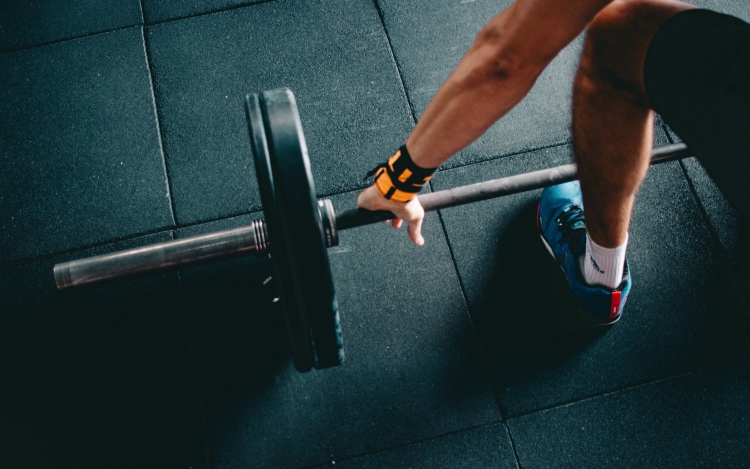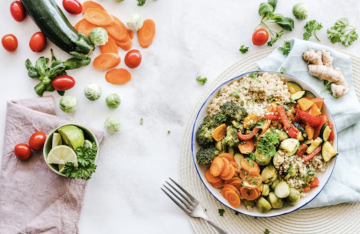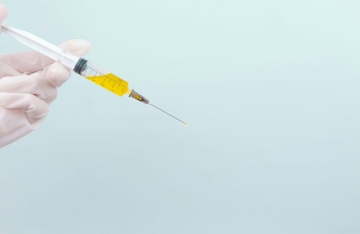Zinc, it’s a tricky little mineral, we have too much and it’s bad for us and if we are deficient it is also bad for us. Luckily, these days it is much easier to stay on track with your diet and to keep fit and healthy with all the new apps and health and wellbeing programs. For hard-working athletes, it is especially important to keep a good level of zinc in your body due to every time you perspire, zinc comes out in the sweat. It is also used for healthy cell division, helps your metabolism and also induces your tissue to repair after exercise. In this article, we will go through the importance of zinc and why it is important in fitness.
What Is Zinc?
Zinc is an essential mineral that plays many vital roles in the body, the issue is that the body does not produce the mineral, so it must be consumed as part of a healthy balanced diet and supplements. Luckily, it is easy to keep a normal level of zinc in the body due to it being found in both plant and animal food sources. Many foods actually have synthetic forms of zinc in them so that it contains the mineral such as breakfast cereal, baking flour and snack bars. Due to the mineral playing a key role in immune function, it is often found in nasal sprays, lozenges and cold treatments.
Zinc is required for the following processes in the body:
- Gene Expression
- Enzymatic Reactions
- Immune Function
- Protein Synthesis
- Wound Healing
- Growth and Development
What Does Zinc Do?
Zinc is a crucial mineral with countless ways of affecting the body. Zincs main role is to help enzymes in the body. This is everything from maintaining immune functions to protecting the body from atoms that damage liver cells and tissue. Zinc is especially important for men as it helps to maintain a healthy level of testosterone which is why it is in a lot of fitness supplements.
Zinc is proven to be involved in the formation of nerve endings and synaptic connections as well as certain aspects of the metabolism. Zinc is especially important to nerve endings as it also helps to regulate a protein called Brain-Derived Neurotrophic Factor (BDNF) which is essential for the nervous system to work functionally. This has been an essential nutrient through the lockdown as lack of BDNF can cause onset depression and can also reduce your memory capacity.
Zinc plays a crucial part in our bodies and not many people understand the importance of it. Most people are deficient in it but mostly athletes, labourers and other people who do intense activity as well as vegans and vegetarians.
Can You Get All The Zinc From Foods?
Zinc has an RDA (Recommended Daily Allowance) of 11 milligrams per day, this doesn’t sound like much but most of the zinc is lost through sweating. You must replace your levels of zinc every day so it’s important to eat certain foods or zinc supplements.
If you like seafood or are a pescetarian, then Oysters have one of the highest proportions of zinc in any food. A serving of 100 grams of oysters contains 78 milligrams of zinc which is more than 500% of your RDA. Fear not, we know oysters are an acquired taste, so why not go for a nice piece of grass-fed beef or lamb as this also provides more than enough zinc.
If you are a vegan or vegetarian, then there are some options out there for you which are plant-based. There is a great selection of foods which include spinach, nuts, mushrooms and a range of different types of beans. All these foods don’t carry as much zinc but you can still meet your RDA if you eat enough, this is why many people supplement zinc.
What Are The Best Zinc Supplements?
Zinc supplements are becoming increasingly popular in recent years with all the hype and understanding of the mineral. Zinc monomethionine aspartate (ZMA) is often used as a sleep supplement with ZMA being a blend of zinc and magnesium which also includes vitamin-B6. ZMA has been mentioned to maintain a healthy testosterone level which may also act as a testosterone booster whilst also boosting zinc and magnesium levels. Increasing the levels of testosterone is unproven at this time as there was no difference in what a placebo did for people when there was an experiment.
What Happens With A Zinc Deficiency?
Severe zinc deficiencies are rare, but it does happen. It can happen when mothers are breastfeeding and they don’t have enough zinc to pass to their infants, people who have alcohol addictions or drugs often have zinc deficiencies.
If your children have not met the correct RDA include stunted growth and development, delayed sexual maturity, skin rashes, chronic diarrhoea, impaired wound healing and behavioural issues so it is extremely important that breastfeeding mums have enough zinc in their body and for children to have their RDA.
Mild forms of zinc deficiency are more common and unfortunately happens to children in developing countries where diets are lacking nutrients. There are around 2 billion people that are deficient in zinc in the world which is a terrifying figure and it’s even scarier that there are over 450,000 deaths of children under 5 every year.
People At Risk Of A Zinc Deficiency
- People With Gastrointestinal Disease Like Crohn’s Disease
- Vegetarians
- Vegans
- Pregnant Women
- Breastfeeding Women
- Older Infants Who Were Exclusively Breastfeeding
- People With sickle Cell Anemia
- Malnourished People
- People With Chronic Kidney Disease
- Alcoholics
Symptoms Of Zinc Deficiency
- Diarrhoea
- Decreased Immunity
- Thinner Hair
- Decreased Appetite
- Mood Disturbances
- Dry Skin
- Fertility Issues
- Impaired Wound Healing
Side Effects For Excessive Zinc Intake
It is pretty difficult to overdose on zinc as although the RDA is just 11 milligrams, many people take over 35 milligrams a day due to supplements offering around 25 milligrams and the zinc that is already in your diet. You will start to feel negative effects if you start to take over 300 milligrams of zinc per day. With these levels of zinc in your body, you will start to be nauseous and will be vomiting.
Zinc can have its downfalls in lower doses too as it competes with copper and iron intake into the bloodstream. Too much zinc in the diet can lead to reduced absorption in iron and copper and in the grand scheme of things, due to zinc being found in every cell, the body will automatically absorb the zinc over the iron.
Symptoms Of Zinc Toxicity
- Nausea & Vomiting
- Loss of appetite
- Diarrhoea
- Abdominal cramps
- Headaches
- Reduced immune functions
- Decreased “good” Cholesterol
Why Is Zinc So Important For Athletes?
Athletes put their body through a lot when training, whether that is marathons, triathlons, weight lifting, they all require extreme pressures on the body. It makes sense then that these athletes need as many nutrients in their body so that they can boost their performance. Zinc plays a crucial role in producing certain hormones such as testosterone which is vital for creating lean muscle mass. Zinc also plays a vital role in the distribution of healthy cells, the metabolism and also helps to maintain a strong heart and respiratory system.




